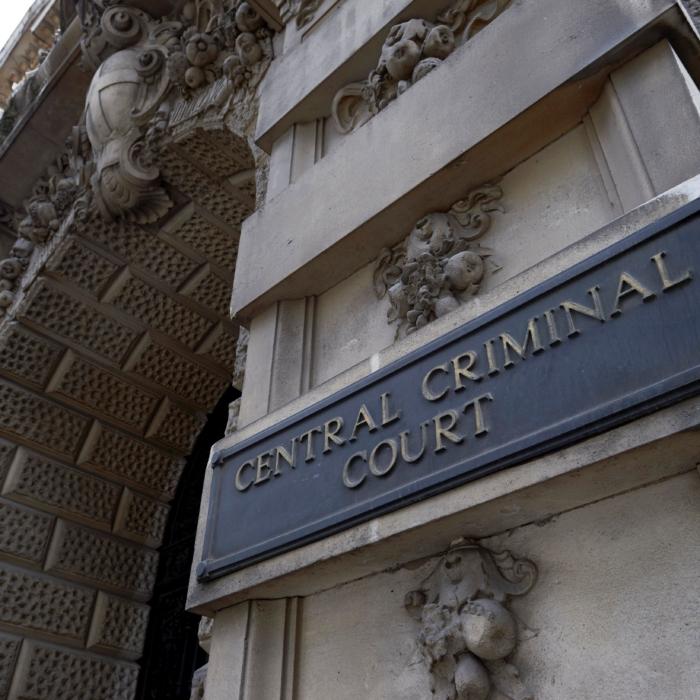A Conservative MP has told a debate in Parliament on the law of joint enterprise murder that it “doesn’t actually go far enough” as the government indicated it would oppose a private member’s bill.
Joint enterprise is a 300-year-old legal principle which states that if a group set out on a course of action—for example murder—then they are all equally guilty of that crime, even if only one of them stabs or shoots the victim.
Kim Johnson, the Labour MP for Liverpool Riverside, has tabled a private member’s bill in Parliament which would restrict the circumstances in which the Crown Prosecution Service (CPS) could use joint enterprise to bring murder charges.
Mr. Davies, who represents Shipley in West Yorkshire, said he opposed Ms. Johnson’s bill and added: “I take the view that joint enterprise works reasonably well at the moment. However ... it has sometimes failed to get convictions where it should, rather than the other way around.”
He then quoted a former director of public prosecutions, Alison Saunders, who once said: “In some cases, it’s not very clear because of the circumstances of the case exactly who did what, but if we know that everyone was participating in the crime then it helps us to be able to prosecute them and to put those facts before the court.”
Mr. Davies then highlighted the case of Kevin Lavelle, who was killed in a pub fight with a group of men in Banbury, Oxfordshire, in June 2004.
He said: “I met the parents of Mr. Lavelle, who have not only to live with the agony of losing their son but to face the ongoing suffering because no one has been convicted of his murder.”
Mr. Davies said: “It seems very clear to everyone that Mr. Lavelle was murdered, and that he was murdered by one of those people, yet no one has been successfully prosecuted for his murder and, tragically, unless something changes in the law—unless the law of joint enterprise is stiffened up—that will continue to be the case: no one will be brought to justice for that crime.”
He also highlighted the work of Jean Taylor, who runs an organisation called Families Fighting for Justice.
Mr. Davies said the group produces a leaflet for schoolchildren in Liverpool, “which makes clear the full repercussions of being involved in a crime that could be listed as joint enterprise.”
Minister Says Evidence Threshold Is ‘Very High’
He said the threshold for people being convicted of murder under the joint enterprise principle was “very high” and added, “They must intend to assist or encourage the commission of the crime and therefore must know of the existing fact necessary to make it criminal.”“If the crime requires the principal to have a particular intent then the secondary must intend to assist or encourage the principal to act with that intent,” added Mr. Bacon.
He said a 2016 Supreme Court judgment made a “narrow” change to the law but it had been “widely misunderstood as meaning that all convictions under joint enterprise would now be found not guilty on appeal.”
Earlier in the debate Ms. Johnson, referring to the opinions of JENGbA, told MPs: “In their own words, this is a miscarriage of justice on the same scale as the Post Office Horizon scandal ... People are being sent to prison for crimes they did not commit.”
She said, “This is an incredibly difficult and sensitive topic because behind each of these joint enterprise cases there are victims of crime and their families, many of whom have lost loved ones in situations that most of us would find difficult to comprehend.”
“And behind each of these joint enterprise miscarriages of justice there are people, loved ones, whole families whose lives have been torn apart by an unjust lifelong sentence, wrongly punished for the crime of another,” added Ms. Johnson.

In 2016 Ameen Jogee, a drug dealer in Leicester, appealed up to the Supreme Court after he was convicted, under joint enterprise, of murdering a man despite being outside the house where his friend, Mohammed Hirsi, stabbed the victim.
The Supreme Court ruled “the common law took a wrong turn” in 1985 when it “allowed secondary parties to be convicted on the basis of mere foresight of an offence.”
‘Joint Enterprise Is ... a Blunt Instrument’
She said, “Joint enterprise is currently wielded as a blunt instrument by the courts, allowing people who have not made a significant contribution to a murder to receive a mandatory life sentence.”“Lawyers and campaigners often refer to it as Russian roulette in terms of who is prosecuted or sentenced for life. My bill seeks to enshrine in law that only where a person is proven to have significantly contributed to a crime can they be prosecuted under joint enterprise,” she added.
The second reading of the bill was adjourned until June 21 and Ms. Johnson said she hoped the government would reconsider its opposition to the legislation.







